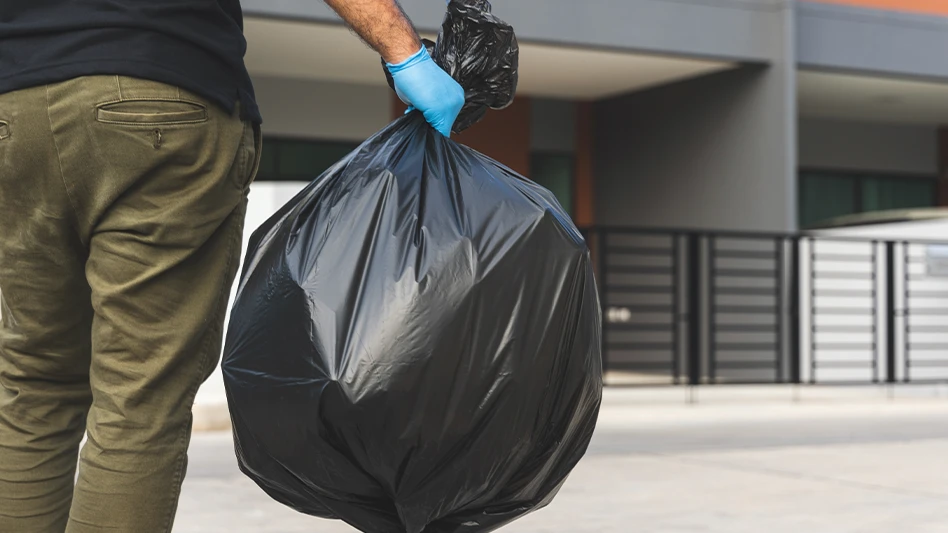
Chanakon | stock.adobe.com
A natural and biodegradable resin has been introduced by United Kingdom-based packaging technology company Symphony Environmental Ltd.
The new product, branded NbR, is made with natural minerals to reduce the amount of fossil-derived polyethylene (PE) or polypropylene (PP) used, and the company says it also has been formulated to biodegrade safely in nature if it escapes recycling and ends up as litter in the open environment.
NbR comprises 20 percent nonfossil natural compounds and is suitable for making a wide variety of packaging, carrier bags, garbage bags, certain types of bottles and agricultural films, according to Symphony.
“This is a major innovation as it will make a dramatic environmental difference by reducing the fossil-derived content of plastic products by 20 percent, cutting CO2 emissions and reducing microplastics,” Symphony CEO Michael Laurier says. “Like ordinary plastic products, a product made with NbR can be recycled and made with recyclate, but it will biodegrade within months if exposed in the open environment instead of fragmenting into microplastics and lying or floating around for decades. Further, NbR offers improved postmold shrinkage and barrier properties.
“This technology was first developed by Symphony in 2011, but due to increased focus on reducing fossil resources in plastics, our early formulations have been upgraded during 2024 and NbR is the result. Trademarks are being applied for, but in line with our strategy, no patent applications will be made in order to protect the confidentiality of our formulations.”
The company says rapid growth in packaging for pharmaceuticals, food and beverage, consumer goods and e-commerce has created strong demand in the polymer resin market. At the same time, consumer requirements, legislative changes and sustainability trends have increased demand for innovative products such as NbR.
NbR has been developed by Symphony to address this requirement. The company claims the global resin market size for which NbR is suitable was valued at $556 billion in 2023 and is projected to grow to £859.27 billion pounds sterling by 2032, at a compound annual growth rate (CAGR) of 5 percent.
Symphony says its NbR technology is consistent with European Union and United States Food and Drug Administration (FDA) packaging food contact regulations, and products are tested for biodegradability and nontoxicity according to international standards.
Latest from Recycling Today
- BMW Group, Encory launch 'direct recycling’ of batteries
- Loom Carbon, RTI International partner to scale textile recycling technology
- Goodwill Industries of West Michigan, American Glass Mosaics partner to divert glass from landfill
- CARI forms federal advocacy partnership
- Monthly packaging papers shipments down in November
- STEEL Act aims to enhance trade enforcement to prevent dumping of steel in the US
- San Francisco schools introduce compostable lunch trays
- Aduro graduates from Shell GameChanger program





